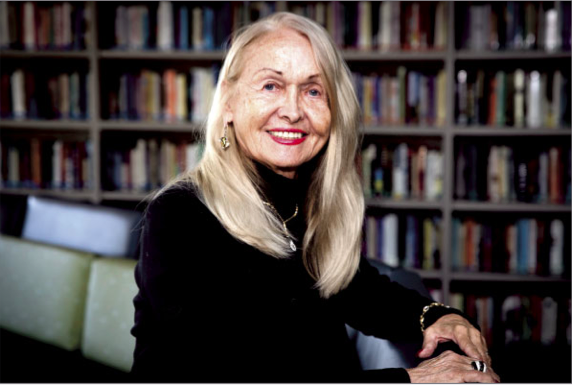In her 74 years, transgender pioneer Judy Bowen has touched many points of light and energy frequencies along the spectrum of humanity.
In her early twenties she moved from the South, where she grew up in a large religious family, to New York City. She danced at the Tango Palace in Times Square, and other clubs in the city.
She also was a patient of the late Harry Benjamin. The endocrinologist and sexologist literally wrote the book on transsexuality, “The Transsexual Phenomenon.”
She said she has spent large chunks of her life as a non-disclosing trans woman, blending into heterosexual society. It helped her build her business; and it kept her safe. She was a restaurant owner and real estate investor in Long Island for more than three decades.
“I kept a low profile,” she said. “I wanted to stay alive and make money.”
Still, her roots lie in the LGBTQ community.
“I am not gay but I am a product of that environment,” she said.
She marched in the first Gay Pride Parade, which was held in 1970 in New York City, and plans to go back for its 50th anniversary next year. She was also a member of the Gay Activists Alliance in the early 1970s.

“We were the same age; born in 1944, “ Bowen said. “I knew her well. We would have coffee together, and sit and talk.”
A few months ago, Bowen traveled back to New York to be included in a new documentary about the Stonewall Rebellion.
She recalled she lived down the block from the famous Stonewall Inn, a mob-run gay bar. She said she was coming home from work in those early-morning hours when the riots started, and found it hard to get to her home because of the great number of people on the streets.
“I knew something was going to happen because it was getting a little crazy,” she said. “There was a heavy police presence all over the area for weeks.
“It (tension) had been building up. People were fed up. They were disgusted about how there were being treated. People just got tired of it and just started fighting back.
“We were all fighting in our own way. I wasn’t attacking the police. After going to jail once, I wasn’t into being beaten up again. We were all afraid of the police.”
In those days crossdressing was illegal. Though Bowen was arrested only once, she said she carried the bruises of the beating for several months.
Though she was, for the most part, able to avoid confrontations with the police, she bears the emotional scars of that era.
She recounted one story where she popped into a bar after work to meet a friend. The police raided it and ordered her to leave.
“I looked like some straight woman who had just wondered into a gay bar,” she said. As soon as she walked out of the place and the door closed, she said she could hear the men screaming from being beaten with billy clubs.
She held back a few tears in telling the story and her soft, slight Southern accent cracked just a little.
The transgender community is diverse and made up of several different groups. Many feel they have not been treated fairly by the LGBTQ community. The famous activist Sylvia Rivera, who fought in the streets, during the Stonewall Riots, was later known for her anger toward the LGBTQ community.
“I did not know her.” Bowen said. “But she had a right to be mad and express her anger. The LGBTQ community did not include the transgender people when they were negotiating with politicians. They would not include us. Sylvia was really mad about this. She was in a position to voice her disapproval.”
Bowen said it is again time to bring different communities together under the LGBTQ umbrella to help protect its legal rights under the current political climate. “It is time to come together again,” she said. “We won’t make any accomplishments in our community unless we start working together.” Bowen has a dream to help build a shelter for the homeless LGBTQ. She has raised more than $2,000 for the Transgender Safety Dorm, operated by The Salvation Army Southern Nevada. The 10-bed dorm was established in 2013 as emergency housing for homeless transgender people, who are often targets of violence.
Randy Kinnamon, Clark County coordinator for the charity, said he is considering expanding the program in the springtime.
In addition, Bowen supports Gender Justice Nevada, which fights to change laws to protect transgender people.
“We are taking the legacy of Judy and other warriors that has been bequeathed to us and building on it,” said Jane Heenan, a local marriage and family therapist, who heads up the Gender Justice clinical services department.
As for Bowen, it’s all about helping others and being true to yourself.
“I believe you can be anything you want to be. I believe you can do anything you want to do. You just have to have faith,” she said. “My God is always with me.”




























